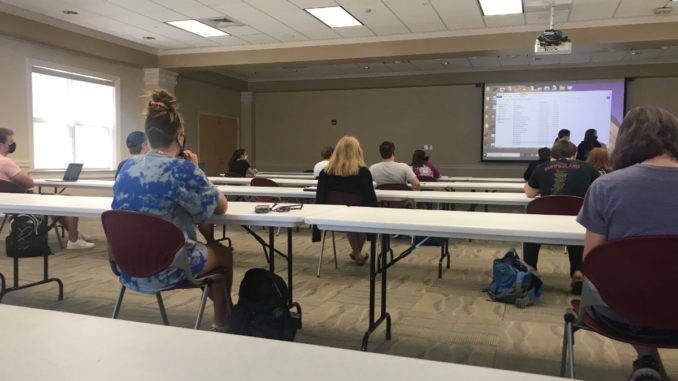
Truman State University is projected to have another decrease in enrollment this academic year partially because of the COVID-19 pandemic.
Official numbers will not be released until the University conducts a census 20 days after the start of the semester. However, Tyana Lange, vice president for enrollment management and marketing, said she expects about 100 fewer new students from last year.
Although Truman is pulling in fewer students than last year, Lange said this estimate is better than what she was initially expecting. According to Lange, some campuses were expecting to be down 15-20%.
“Given where we were with COVID-19, that was actually a little bit better than we had anticipated,” Lange said. “We won’t know for sure until people actually show up because we are definitely having students who are … uncomfortable and haven’t decided what they wanted to do for sure for the fall semester.”
Lange explained that the University has been exploring ways to make these students feel more comfortable about going to college in a pandemic. Students who prefer to stay away from campus but are still interested in going to Truman, for example, can use awarded scholarships to pay for a part-time schedule, allowing them to enroll in six to 11 credits online. Lange explained that Truman is also allowing new students to defer their acceptance to spring or fall 2021 and guaranteeing that their scholarships will be applied if they choose to enroll later.
Even before getting accepted, some prospective students needed accommodations as the pandemic made it difficult for many to complete standardized testing that is usually considered part of the Truman admission process. The test scores were viewed as optional for this year as a result.
Lange said these accommodations are important for enrollment and retention because it shows the University is keeping options open for students.
“When things get back to semi-normal we want to make sure that we have developed an amazing relationship with those prospective students so they still want to be part of the Truman family,” Lange said. “These kinds of things help us maintain that relationship with them and we just feel like it’s the right thing to do.”
Lange said she is hearing a variety of perspectives from prospective students and parents — some of which are excited to get to campus and others who are considering postponing their in-person college experience. Truman is trying to meet these students at their comfort level and offer accommodations, Lange explained, instead of trying to convince everyone coming to campus is the right option.
While total enrollment might be decreasing, first to second year retention is up to 88.6%, which is up from the rate of 83.5% from the last two years. Lange said Truman implemented more communication and intrusive advising, which is a more proactive approach. She said this advising approach will continue in the future.
